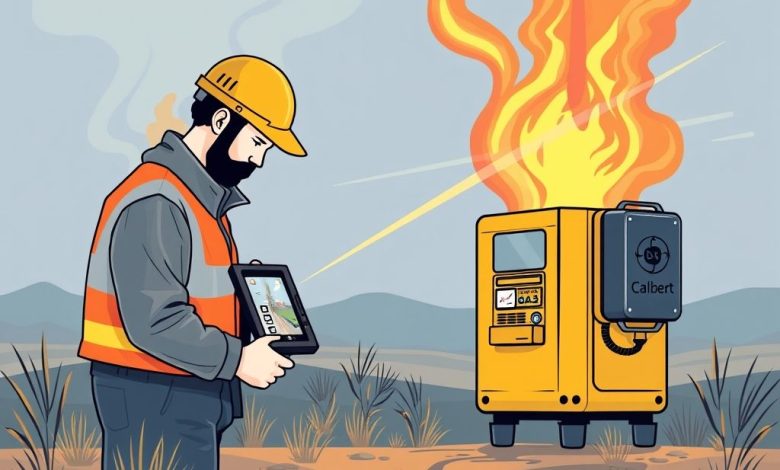Field Service Management for Gas Detector Calibration

Field Service Management for Gas Detector Calibration
Introduction
Field service management (FSM) is a crucial aspect of maintaining safety and efficiency in various industries, particularly in the context of gas detector calibration. Gas detectors are essential devices used to detect potentially hazardous gases in industrial environments, such as chemical plants, oil refineries, and construction sites. Regular calibration of these detectors is critical to ensure accurate readings and timely response to potential threats.
This article will explore the importance of FSM in gas detector calibration, highlighting its benefits, challenges, and best practices. We will examine how FSM systems can streamline the calibration process, improve safety standards, and enhance overall operational efficiency.
The Importance of Gas Detector Calibration
Gas detectors play a vital role in protecting workers and preventing accidents in hazardous environments. However, like any electronic device, they require regular maintenance and calibration to function correctly. Inaccurate readings from malfunctioning detectors can lead to:
- Delayed response times in emergency situations
- False alarms causing unnecessary evacuations
- Increased risk of exposure to toxic gases
- Potential legal liabilities for companies
Regular calibration ensures that gas detectors provide reliable and accurate data, allowing personnel to respond promptly and effectively to potential hazards.
Challenges in Gas Detector Calibration
Despite its importance, gas detector calibration presents several challenges:
- Remote locations: Many industrial facilities are located in remote areas, making it difficult to send technicians for frequent calibrations.
- Scheduling conflicts: Coordinating calibration schedules with ongoing operations can be challenging, especially in high-production environments.
- Technological complexity: Modern gas detectors often incorporate advanced features and sensors, requiring specialized knowledge to calibrate properly.
- Regulatory compliance: Different regions have varying regulations regarding gas detector calibration intervals and methods.
- Cost considerations: Frequent calibrations can be expensive, especially when considering travel costs for technicians.
Benefits of Implementing FSM Systems for Gas Detector Calibration
Field service management software offers numerous advantages in managing gas detector calibration processes:
- Improved scheduling: FSM systems allow for efficient scheduling of calibrations based on priority, location, and technician availability.
- Enhanced tracking: Real-time monitoring of calibration status helps ensure detectors are always functioning optimally.
- Automated reminders: The system sends automatic notifications for upcoming calibrations, reducing the likelihood of missed appointments.
- Centralized database: All calibration records are stored in one place, facilitating easy retrieval and analysis.
- Cost reduction: Optimized scheduling and reduced travel time lower overall operational costs.
- Increased safety: Regular calibrations ensure detectors are always functioning correctly, improving workplace safety.
- Compliance management: FSM systems help track and manage regulatory requirements for gas detector calibration across multiple locations.
Best Practices for Implementing FSM Systems
To maximize the benefits of FSM systems for gas detector calibration, consider the following best practices:
- Choose a user-friendly FSM software that integrates well with existing systems.
- Conduct thorough training for all personnel involved in the calibration process.
- Implement a tiered scheduling system, prioritizing high-risk areas and detectors with critical safety implications.
- Regularly update the FSM system with new detector models and calibration requirements.
- Utilize mobile apps for technicians to access calibration schedules and report issues on-site.
- Integrate IoT technology to monitor detector performance remotely and automate parts of the calibration process.
- Establish clear protocols for handling calibration failures or unexpected results.
Conclusion
Field service management plays a crucial role in maintaining the effectiveness of gas detector calibration processes. By implementing FSM systems, organizations can streamline their operations, improve safety standards, and ensure regulatory compliance. As technology continues to advance, we can expect even more sophisticated FSM solutions to emerge, further enhancing the efficiency and reliability of gas detector calibration across various industries.
By investing in FSM systems and adhering to best practices, companies can mitigate risks associated with inaccurate gas detection while optimizing their operational costs and improving overall workplace safety.



